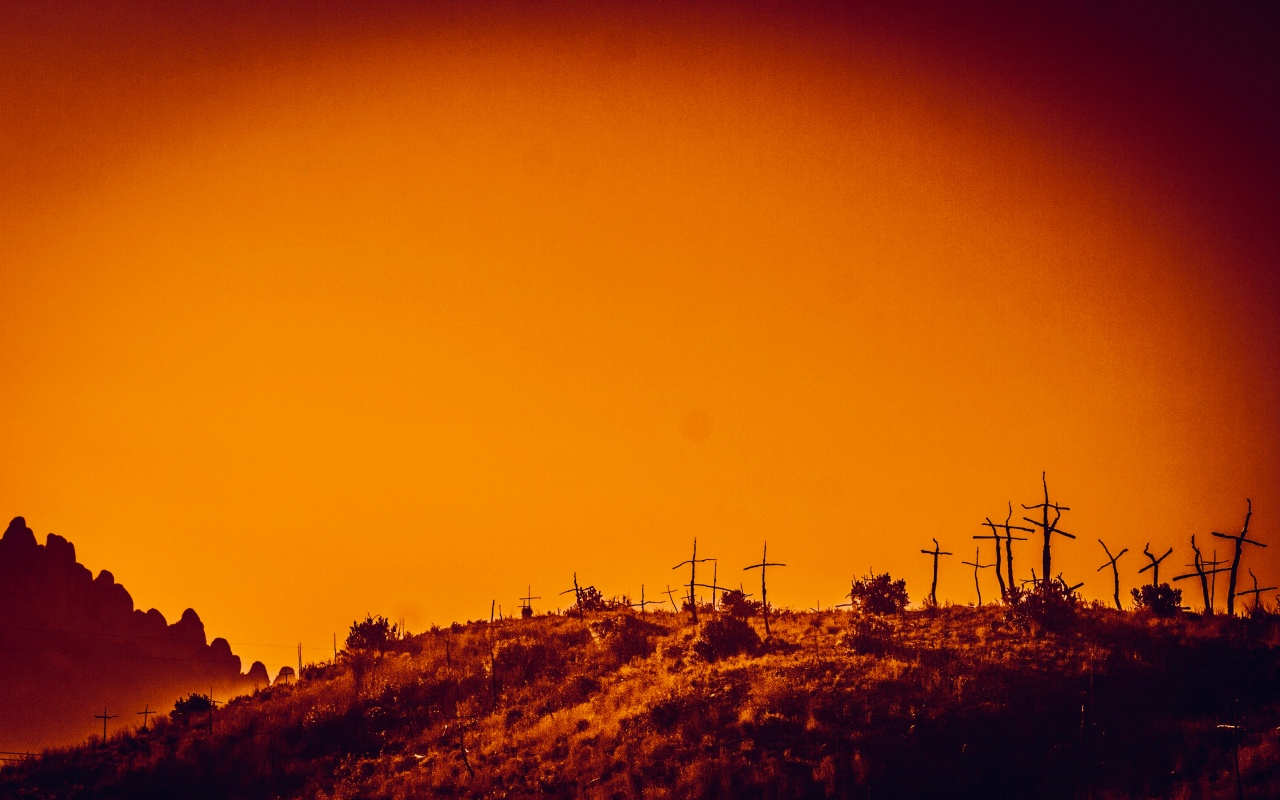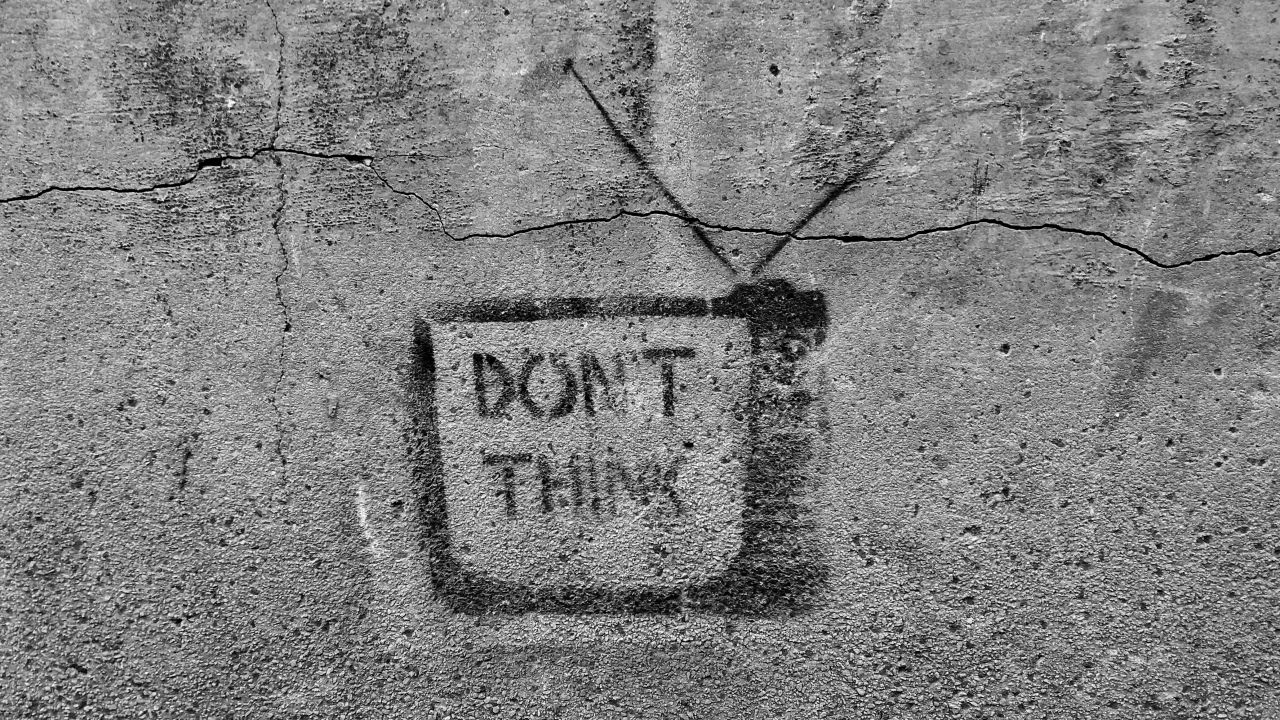If you have not read the first post in the HELL series, you can read it here.
Let’s just dive headfirst into this.
If you believe the creation narrative in Genesis, your first observation should be that evil existed before the first humans were created.
I know that is a heavy idea and something you may have never fully considered, so you may want to reread that sentence a few more times before continuing.
Evil existed before the first human beings.
Evenmore, evil existed before their first decision to break shalom (sin) with God by literally, or figuratively, eating from the Tree of the Knowledge of Good and Evil.
And that point is essential to understand because, to our knowledge, the first humans, like us, did not have any say on entering a reality in which evil already existed.
People talk so much about Original Sin, the first sin of Adam disobeying God’s command, and then act like it is something uniquely terrible that this first human did. But we were put into a reality in which disobeying God is absolutely inevitable. There can be no other way. And it doesn’t matter if it was a guy named Adam, a gal named Eve, a kid named Cain, or any one of us today.
Just by virtue of being birthed into a hostile world in which evil already existed, we were placed in an impossible situation.
To me, it’s like a dad putting his toddler in a muddy backyard and then expecting her to stay absolutely clean.
But actually, it’s worse than that.
It’s like a dad putting his toddler in a muddy backyard, expecting her to stay completely clean, and then threatening her by saying, “If you get muddy I am going to lock you in the basement the rest of your life and torture you, unless you say you are sorry.”
You may be thinking, “Ok. I see your point, but the father offered to forgive her if she would just say that she is sorry.”
To which I would simply respond, “Should his little girl be obligated to say she is sorry for being placed in the muddy backyard by her father in order to avoid the father’s judgment, wrath, and torture?”
Any reasonable person would admit that this little girl was placed in an impossible situation, without her consent, and with a threat of punishment that seems completely illogical and sadistic. She never asked to be put in the muddy backyard in the first place. And forcing her to say that she is sorry for getting dirty seems ridiculous. And threatening her with a lifetime of torture is absurd. If this happened in your neighborhood, you would demand that child protective services be called and the father locked up.
A good father would never do this to his child.
And this is no different than our own existence on Earth.
If God created a reality in which evil existed before humanity, and then we were placed within that reality with the certainty that “we would sin,” then how is the burden on us? Isn’t the burden on God to resolve the situation of evil and not blame us for the impossible situation God put us in?
The fundamental question is, “Ought any human be punished for eternity for entering a reality, in which we did not agree, and to which we did not have any say, and for which we were never the original cause for evil?”
Because, if I had the choice of entering a reality in which the deck seemed impossibly stacked against me and the rest of humanity, with the incredibly large percentage of us going to Hell forever and ever and ever, I would have simply chosen to never enter this reality. The cosmic odds would be against taking that kind of risk. But see, we weren’t given that choice.
So, as it currently stacks up, if this predominant narrative of going to Hell for eternity (also called Eternal Conscious Torment) is true, then 95% of the people who have ever lived on this planet are destined for an eternity of suffering in the everlasting flames of Hell. Out of the approximately 110 billion people who have lived on Earth from the beginning until now, there have only been 5-6 billion Christians since the time of Jesus. And that’s a lot of people who will burn forever.
But are we supposed to believe that every person in history, except for professed followers of Jesus, will be burning in the flames of Hell for eternity?
What about every single person born before the death and resurrection of Jesus?
What about people born before the death and resurrection of Jesus, but who lived in the farthest reaches of the planet and who never heard of Jesus?
What about every single person born after the death and resurrection of Jesus, but who lived in the farthest reaches of the planet and who never heard about Judaism or the saving grace of God through Jesus?
What about every single person born into other religions and who never knew otherwise?
What about every person who ran away from God because their parents physically, emotionally, and verbally abused them in the name of God?
What about every person who never wanted anything to do with God because of the hateful wrath of those who yelled and screamed and damned and condemned in God’s name?
I have to tell you, and I am going to be brutally honest here, if God created a such an immensely difficult and impossible reality, and then made the entire point of it a single decision that we would make to determine whether we would spend eternity in Heaven or Hell, then God has already failed. There is no way any single person can look at 100 billion people burning in Hell for eternity, the overwhelming majority of which who never knew anything about Jesus, and think that God is anything close to victorious.
There is no Good News in that no matter how you spin it.
Again, if evil existed before a single human was created, then it is God’s situation alone to remedy. And if the majority of human beings are sent to Hell for eternity for something we did not create, cause, or choose in the first place, and then we are born into a random situation that is completely outside of our control, then God is immeasurably more horrific than the worst tyrant or dictator we could ever imagine.
The good news is that God is not a tyrant. And this is not the fate of mankind.
In fact, the idea of burning in Hell for eternity is utterly inconsistent with a God that we are told looks exactly like Jesus. Because if Jesus is the perfect embodiment of God, then how could the two be so radically different from each other?
And then, how could Jesus, not just preach radical, unmerited, unconditional forgiveness, grace, mercy, and love to friend and enemy alike, but then have the audacity to tell us to be the exact same way, if the God he represents is the complete opposite of that, demanding the most severe retribution and punishment for enemies?
We must conclude that we are either more moral and ethical than this God, who is willing to send billions of people to Hell for eternity? Or, we must conclude that we have monumentally misunderstood who God is and what God’s heart is for each one of us and what the fate of mankind is.
I know this all may be disorienting and hard to process. There is no question that you are likely thinking of all the verses and examples from the Bible that you could use to refute this post, but be patient and breathe. We will get to all of those verses and passages in short order. This is just the first step of many.
After reading this post, you may wondering why Jesus had to die if he is not saving people from an eternity in Hell. I am glad you asked. Read about that in HELL 3.



